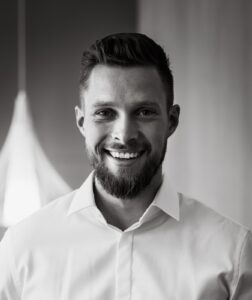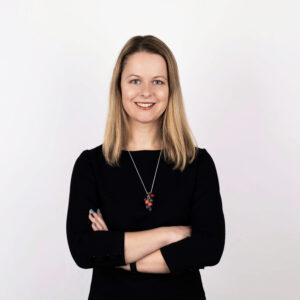Household food waste is a key factor in food waste generation globally. Therefore, municipalities are searching for new ways to encourage citizens to recycle at home. The idea, proposed by the international team of students, which encourages people to recycle, has been awarded the ECIU University Transnational Innovation Voucher (TIV) worth 5,000 EUR. The team now are developing their solution further.
Households produce a variety of waste which requires different disposal methods. In Lithuania, municipal solid waste that ends up at mechanical biological treatment plants consists of approximately 20% of reusable material (plastic, paper, metal, and glass material). Despite the fact that food waste is the main cause of contamination in other recycling streams, the skills of the Kaunas region population in the segregation of kitchen and food waste are almost non-existing.
The challenge was raised by the Kaunas University of Technology (KTU) together with Kaunas Region Waste Management Centre and proposed to solve to the teams as an ECIU University challenge. An international team of students from KTU, Lithuania, the University of Trento, Italy, and the University of Aveiro, Portugal, took up the challenge and found a way to incentivise people of the Kaunas region to increase their household waste sorting.
Joao Pedro Santos, a student from the University of Aveiro is one of the five students who worked with the voucher-winning solution. He explains the situation in Lithuania: “During our early investigations, we noticed that in 2019, Lithuania had the highest plastic packaging waste recycling rate in Europe – 70%. Nonetheless, there is still very little done for organic waste sorting, which most of the time goes undisposed. And there are very few facilities that can process this kind of waste in the country.”
Laurynas Virbickas, Director of the Kaunas Region Waste Management Centre was impressed by the findings of the students and their insights.
 “Based on Eurostat, students found out that only 46% of waste is recycled in Lithuania. As a result, the team set themselves the task of creating a tool that not only encourages sorting but also teaches how to do it correctly. The team also highlighted the problem of food waste – more than 41 kg of food per citizen is wasted in Lithuania and this widely contributes to the increase of greenhouse gas emissions and climate change”, said Virbickas.
“Based on Eurostat, students found out that only 46% of waste is recycled in Lithuania. As a result, the team set themselves the task of creating a tool that not only encourages sorting but also teaches how to do it correctly. The team also highlighted the problem of food waste – more than 41 kg of food per citizen is wasted in Lithuania and this widely contributes to the increase of greenhouse gas emissions and climate change”, said Virbickas.
To solve the challenge, the team of students developed an app called “KAIP” to help citizens with waste sorting tasks. The app empowers its users with information, allowing them to know what they need to do to properly sort their waste. It also connects citizens so that they can share details with each other. All this happens in a centralised platform, thus making the whole experience smoother.
Michele Marchi, a student from the University of Trento, explains: the “KAIP” app is meant for children and grownups. It has games regarding recycling and composting and videos explaining how to properly recycle and compost. The app also has a discussion platform where other users can talk and share their ideas. If any of the users have an issue regarding the app, they can use professional customer support where all the questions the users may have about the app will be answered.”
The solution proposed by the team attracted a lot of interest and won the ECIU University Transnational Innovation Voucher (TIV) worth of 5,000 EUR. This voucher can help the team to take their project to the next level.
“The Innovation Voucher will be used to reach our main objective – to develop the app. We will also use the funding to cover the travelling costs, which will improve the communication within our international team,” says João Borges, from the University of Aveiro in Portugal.

Michele from Trento in Italy believes that for him participating in the ECIU University challenges is the most valuable for the opportunity to collaborate with students of different universities, who have different competencies, cultures and experiences.
“I was able to see different points of view, habits and ways of living that I could not ever imagine. Regardless of these differences, we came together to solve a common problem. I am looking forward to travelling to Kaunas around December and to hopefully meeting those of us who study there and our teamcher Inga Stasiulaitienė,” says Michele.
The challenge-solving process facilitator Inga Stasiulaitienė from KTU Faculty of Chemical Technology, Department of Environmental Technology, is excited that the team under her supervision won the incentive for the further development of their idea.
“The vouchers add not only motivation but also an opportunity for students to actually implement the challenge, using financial resources. This team was exceptional: it was very versatile, very energetic and enthusiastic to meet the challenge, and, because it was formed from students of different countries and with different backgrounds – very interdisciplinary. The team’s initiative and hard work allowed them to achieve the result that satisfied all parties,” said Stasiulaitienė.
ECIU University, of which KTU is a member, connects innovative universities across thirteen European countries. Students from ECIU members are welcome to explore and join ECIU University challenges and micro-modules.